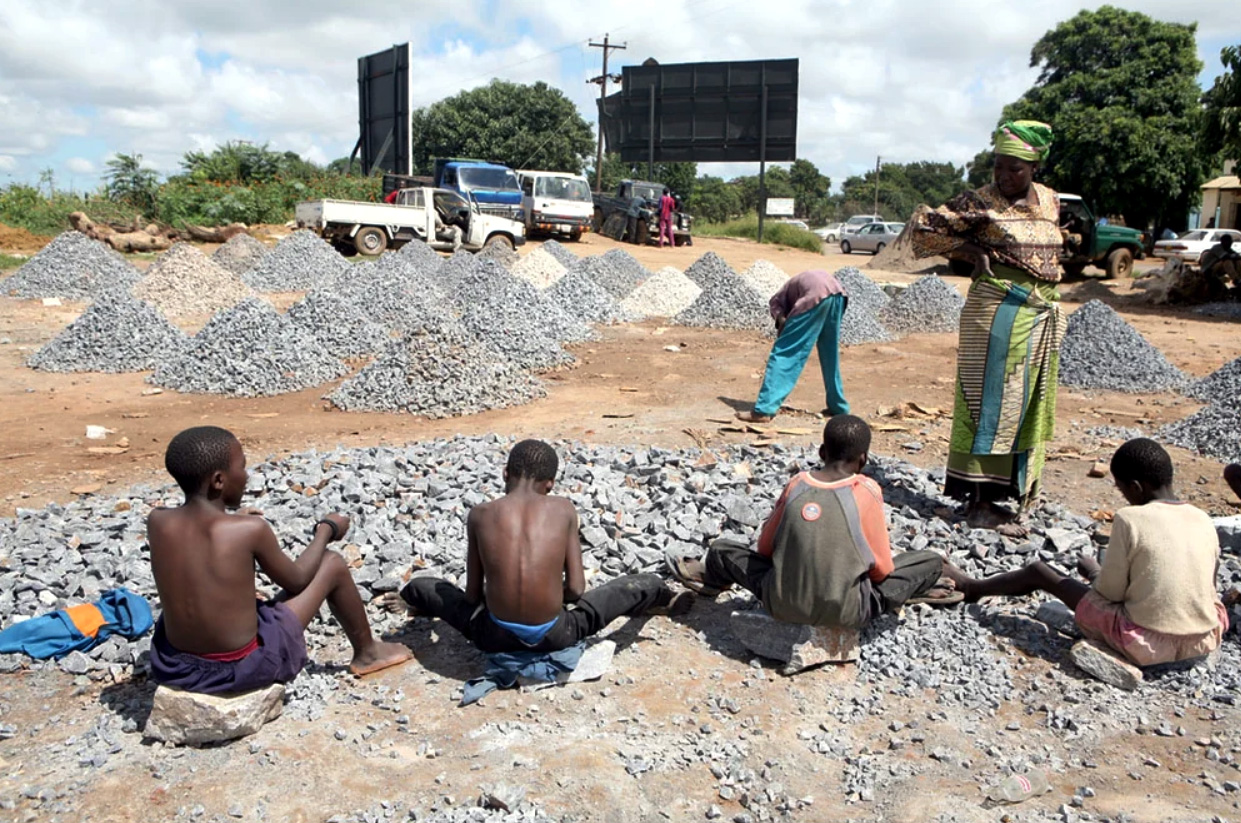+++ News ticker +++ Start of the International Year for the Elimination of Child Labour: Minister Müller calls for swift agreement on supply chain law
Child labour in a quarry in Zambia
“It is high time for us to finally stop talking about the topic of child labour and start doing something about it,” Müller continued. “We must act quickly now to put the supply chain law in place – so as to stop child labour and ensure that human rights standards are applied for German products. Seventy-five per cent of Germans, the consumer bodies, nearly 100 companies and now, also, 70 economists are demanding that such a law be introduced. We want ”Made in Germany“ to mean not just good quality but also fair production.”
“There are also many aid agencies that are supporting the fight against child labour. In order to expand this work, we are now launching a cooperation fund. The first measures will begin at coffee and cocoa plantations in Honduras and Ghana, and at quarries in India and in Congo, where children are working to extract mica which is used in our cosmetics, or precious metals which go into our smartphones. This year, let us join forces – with the international community, businesses and civil society coming together – in order to end child labour.”
Background information on child labour
Around the world there are more than 150 million child workers, more than 70 million of whom are working under exploitative and dangerous conditions. Agriculture is the biggest sector for child labour, with more than 100 million children working in it. Particularly bad forms of child labour are children being put to work in mines in Central Africa, or being used as soldiers or for prostitution. Around the world, there are about 250,000 minors who are being misused as child soldiers, forced to commit atrocities. The International Labour Organization (ILO) estimates that about one million children are forced to work in the sex industry. Worldwide, 415 million children live in a conflict zone. A higher than average number of these children are forced to work because many of them have lost their parents and are trying to get by on their own.
In order to fight child labour, the Development Ministry is promoting sustainable supply and value chains worldwide and is campaigning for everyone to step up their engagement. For example, by promoting multi-stakeholder initiatives involving businesses, civil society and policymakers, like the German Initiative on Sustainable Cocoa, the Sustainable Textiles Partnership or the government-run Green Button textile label.
